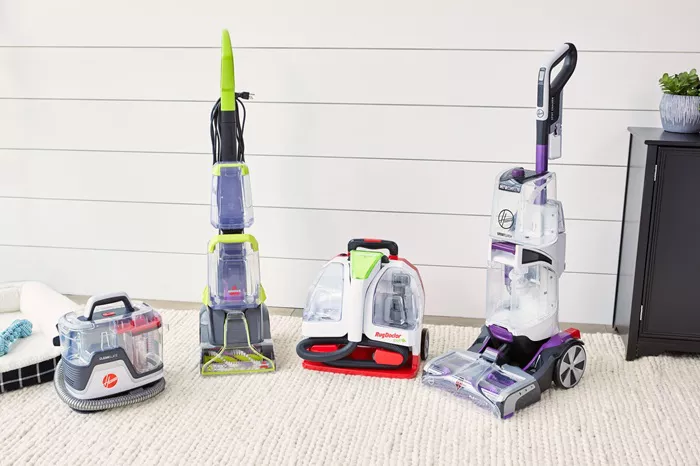When it comes to commercial cleaning, choosing the right vacuum cleaner is crucial. Unlike residential vacuums, commercial-grade machines must handle heavy-duty tasks, frequent use, and large spaces without breaking down. Whether you manage an office building, a hotel, a school, or a hospital, the vacuum you select can significantly impact cleaning efficiency and long-term costs.
Understanding Commercial Vacuum Cleaners
Commercial vacuum cleaners are built for durability and performance. They are designed to withstand daily use, often for several hours at a time, and must effectively remove dirt, dust, and debris from various surfaces. Unlike household models, commercial vacuums prioritize power, filtration, and ease of maintenance.
One of the key differences between residential and commercial vacuums is motor strength. Commercial models typically feature industrial-grade motors that provide stronger suction and longer run times. Additionally, they often include advanced filtration systems to capture fine particles, which is especially important in environments like hospitals or schools where air quality matters.
Another important factor is the type of debris the vacuum will handle. Some commercial spaces deal with fine dust, while others may have larger debris like paper scraps or food particles. The best commercial vacuum should be versatile enough to handle different types of waste without clogging or losing suction.
Key Features to Look for in a Commercial Vacuum
When selecting a vacuum for commercial cleaning, several features should be prioritized. The first is suction power, which determines how effectively the machine picks up dirt. A vacuum with strong suction will clean faster and more thoroughly, reducing the need for multiple passes.
Filtration is another critical feature. High-efficiency particulate air (HEPA) filters are often recommended for commercial use because they trap 99.97% of particles as small as 0.3 microns. This is essential in medical facilities, laboratories, and schools where allergens and pathogens must be controlled.
Durability is also a major consideration. Commercial vacuums should have sturdy construction, reinforced hoses, and heavy-duty wheels to withstand daily wear and tear. Look for models with metal components rather than plastic, as they tend to last longer under heavy use.
Ease of maintenance is another factor. Commercial vacuums require regular filter changes, bag replacements (if bagged), and occasional belt adjustments. A well-designed vacuum will make these tasks simple, minimizing downtime. Some models even feature washable filters, which can reduce long-term costs.
Noise level is often overlooked but can be important in environments like offices or libraries. While most commercial vacuums are louder than residential ones, some models are designed with noise-reduction technology to minimize disruption.
Types of Commercial Vacuums
There are several types of commercial vacuum cleaners, each suited for different cleaning needs. Upright vacuums are common in offices and hotels because they are easy to maneuver and cover large areas quickly. They work well on carpets and hard floors, especially if they have adjustable brush rolls.
Backpack vacuums are popular among professional cleaners because they are lightweight and allow for easy movement in tight spaces. They are ideal for schools, theaters, and multi-level buildings where portability is key.
Canister vacuums offer strong suction and are excellent for cleaning stairs, upholstery, and hard-to-reach areas. They are often used in hospitals and clinics where detailed cleaning is necessary.
Wet/dry vacuums are versatile machines that can handle both liquid spills and dry debris. They are commonly found in restaurants, warehouses, and industrial settings where messes can vary.
Automatic scrubbers and sweepers are used in large commercial spaces like airports and shopping malls. These machines combine vacuuming and mopping functions, making them highly efficient for maintaining polished floors.
Top Recommendations for Commercial Vacuums
Several brands stand out in the commercial vacuum market due to their reliability and performance. One of the most trusted names is ProTeam, known for its backpack vacuums that are lightweight yet powerful. Their models often include HEPA filtration and long cords for extended reach.
Nilfisk is another top brand, offering a range of commercial vacuums designed for heavy-duty cleaning. Their machines are known for durability and advanced filtration, making them ideal for healthcare and industrial environments.
Kärcher specializes in professional cleaning equipment, including high-performance wet/dry vacuums. Their models are built to handle tough jobs, from construction debris to liquid spills.
For those needing an upright vacuum, Sanitaire is a popular choice. Their vacuums are simple to use, easy to maintain, and built to last in high-traffic commercial spaces.
Maintenance Tips for Longevity
Even the best commercial vacuum will underperform if not properly maintained. Regular filter cleaning or replacement is essential to maintain suction power. For bagged models, changing the bag before it gets too full prevents clogs and motor strain.
Inspecting the brush roll for tangled hair or debris ensures smooth operation. Belts should be checked periodically for wear and replaced as needed to avoid breakdowns.
Storing the vacuum in a dry, clean area prevents damage and prolongs its lifespan. Following the manufacturer’s maintenance guidelines will help keep the machine running efficiently for years.
Conclusion
Selecting the best vacuum for commercial cleaning depends on the specific needs of the environment. Factors like suction power, filtration, durability, and ease of use should guide the decision. Investing in a high-quality commercial vacuum not only improves cleaning efficiency but also reduces long-term costs by minimizing repairs and replacements. By understanding the different types of vacuums and their features, businesses can make an informed choice that ensures a cleaner, healthier space for employees and visitors.
Related topics:
What Is the Newest Roomba Model?
What Is the Best Vacuum to Use on Hardwood Floors?
LionsBot Launches ‘World’s First Zero-Click Cleaning Robot’

